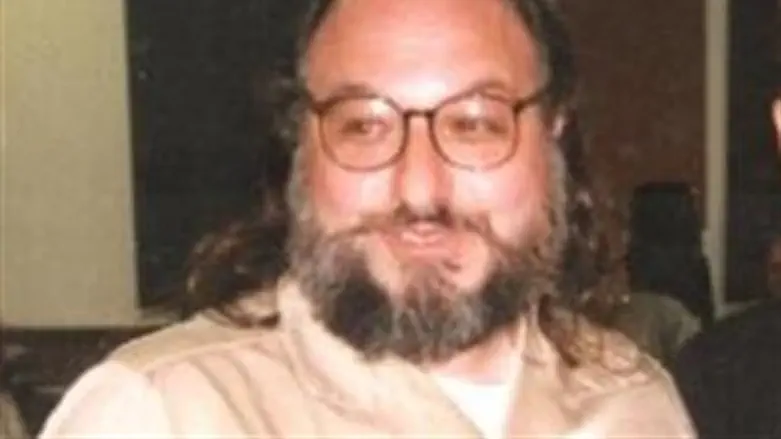
The United States promised Israel that Jonathan Pollard, who was convicted of spying on the US for Israel and jailed 28 years ago, would serve no more than a ten-year jail sentence, according to Pollard's former handler, ex-minister Rafi Eitan.
"He has served time for what he did, above and beyond what was understood at the time by the governments of Israel and the US,” Eitan said in an interview on IDF Radio. “The understanding was that he would not be jailed for more than ten years.”
Eitan said that Pollard has served more time in jail than anyone else convicted of a similar offense in the US, and apologized to Pollard “for his being in jail for so many years.”
There were rumors about such an understanding at the time Pollard was jailed, in the mid-1980s, but this is the first time they receive express confirmation, and it comes from a top-level insider.
Eitan said that the Israeli government told him at the time to cooperate with the US and to give them information that could be used to implicate Pollard in spying. In exchange, the US promised that Pollard would not be jailed for more than a decade.
However, writes Maariv, the US broke the promise in the course of the trial, and submitted a secret document to the court in which they asked to sentence Pollard to life in jail. When the ten years were over, Israel's leaders refrained from insisting that the deal be honored “because of the embarrassment the affair caused Israel, among other reasons,” writes the paper.
November 21 will mark 28 years since Pollard was jailed.
There is widespread recognition in the US establishment, too, that Pollard is being treated unfairly. The list of people who have called for his release includes former U.S. Deputy Defense Secretary Lawrence Korb, former U.S. Senate Intelligence Committee Chairman Dennis DeConcini, Ronald Reagan's National Security Advisor Robert McFarlane, former CIA Director James Woolsey, former Attorney General Michael Mukasey, former Deputy Attorney-General Philip Heymann, former Secretaries of State Henry Kissinger and George Schultz, 39 U.S. Congressmen and 18 U.S. Ex-Senators. Even the European Parliament adopted a resolution in this vein, 20 years ago.
Arutz Sheva columnist Giulio Meotti has noted, however, that “virtually all of the most influential Jewish voices in America remain silent” on the matter.
“Jonathan was put away for life,” wrote Meotti, “not because he endangered the US, but because he irritated US Arab allies who felt that Israel had been too much strengthened; and second, because he made Israel impervious to American pressure. What Pollard endangered was the US administration's pro-Arab political agenda, not the intelligence community.
Meotti noted that recently-released CIA documents “clearly show that Pollard focused on 'Arab (and Pakistani) nuclear intelligence; Arab weaponry, including chemical weapons; Soviet aircraft; Soviet air defences; Soviet air-to-air missiles and air-to-surface missiles; and Arab order-of-battle, deployments, readiness.'”
“Pollard passed Israel photos of the PLO headquarters in Tunis, secret information about Libya’s air defenses, Syrian chemical weapons, Egyptian ballistic missile capabilities, and the Pakistani atomic program.
“Pollard obtained the most exact U.S.-gathered information about Iraqi chemical warfare capabilities, including satellite pictures and maps showing the location of factories and storage facilities.
“The United States did not want to make such specific information available to Israel, fearing a preemptive strike,” says Meotti.
Pollard's actions also appear to have touched a particularly sensitive nerve, for Jewish-Americans and non-Jewish Americans: the suspicion, by many of the latter, that Jewish-Americans are not only inordinately influential and successful, but also harbor a double loyalty, to Israel as well as the US; and the fear, by the former, of being suspected of this double loyalty.
